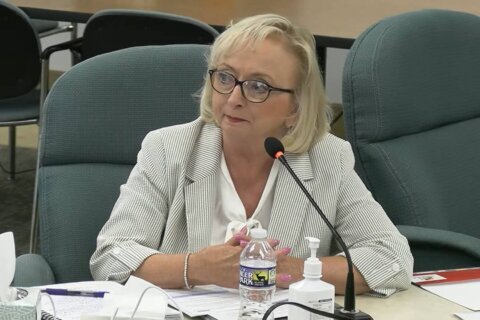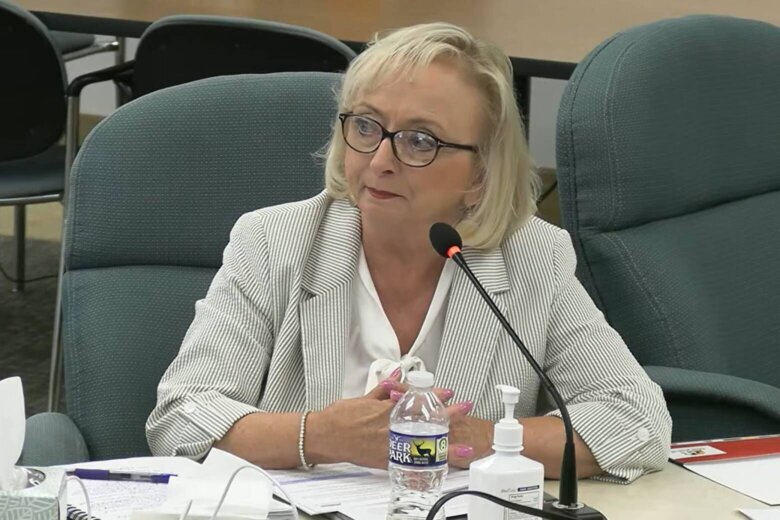
Maryland’s State Superintendent of Schools Carey Wright stressed that the literacy policy she proposes to improve student reading performance is still a work in progress.
But the pressure is on to improve literacy among third graders. And Wright is a proponent of the “science of reading” approach to literacy and doing more to make sure that students in elementary school have stronger reading skills before moving to the next grade level.
Maryland’s third grade reading scores in 2022 show the state ranks 41st. That compares to the No. 1 ranking the state received on the NAEP, known as the “nation’s report card,” in 2013.
At a meeting of the Maryland State Board of Education on Tuesday, Tenette Smith, executive director of literacy programs for Maryland, told board members that “88% of students who failed to earn a diploma were struggling readers in third grade.”
And, she continued, “Students who are not reading proficiently in third grade are four times more likely to not graduate from high school.”
The draft literacy policy calls for early intervention for students, something that board members at Tuesday’s meeting seemed to agree on, although board member Susan Jackson Getty said they should begin even earlier.
“Student interventions need to start in kindergarten, not wait until failure in third grade,” she said.
Getty and several other board members made clear they have reservations about one part of the policy that calls for “retention,” or holding back third graders who don’t achieve proficiency in reading.
“The fact of retention is, it falls on the student,” Getty said. “The student is to correct the problem, but the administrator, the teacher and the parents walk away,” and for them, she added, life is “no different.”
Board member Joan Mele-McCarthy, who works at an independent school serving children with dyslexia and other learning differences, said it’s important that any problem with reading and literacy be flagged early.
“I get applications for children in sixth grade who read at a second grade reading level, and parents either didn’t know or were told that they’re making progress,” she said.
But Mele-McCarthy told Smith, the head of the literacy program, she was “not aligned” with the retention policy and urged that the state “proceed with caution” on enacting the plan.
Mele-McCarthy said she’d need more information “and I mean a lot more,” she added, before she could support the policy in its current form.
Board member Nick Greer said, as a parent, “I’m not a fan of retention.” But he added, “I’m also not a fan of schools and school leaders or anyone lying to our families and our children that they are ready to move forward.”
Wright, who has been lauded for her tenure in Mississippi, where a recorded boost in reading scores was dubbed the “Mississippi Miracle,” has said the plan will require parents to be partners in their students’ learning.
A vote on the plan is expected in September. If approved, the policy would not go into effect for another two years. That would mean that students entering the first grade this year would be the first group to attend school with the new policy in place.
Get breaking news and daily headlines delivered to your email inbox by signing up here.
© 2024 WTOP. All Rights Reserved. This website is not intended for users located within the European Economic Area.









